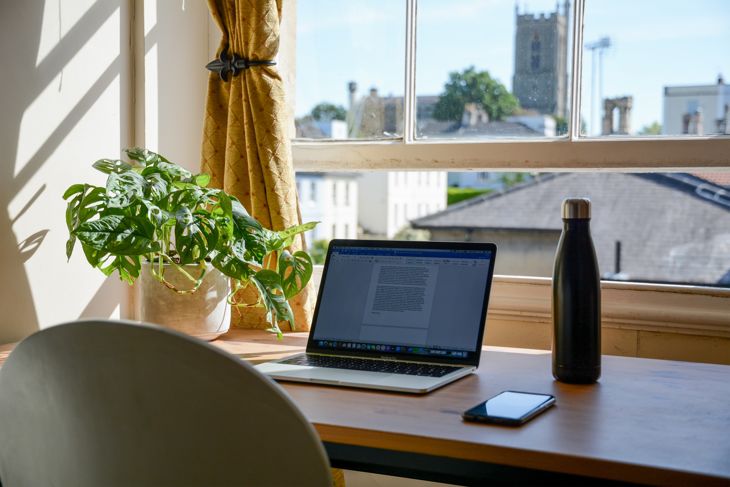However, a recent study shows that people who work their same office schedule from home get more done each day - the explanation was none other than having a quiet work environment.
Below are 6+1 tips you may find useful to create an effective and productive home office - some of these tips might work in a "real" office, too. Additionally, residents of Singapore can apply for a home office scheme, where homeowners, tenants or occupants of private residential properties can set up small-scale offices in their homes, as long as they satisfy the prevailing HO guidelines and performance criteria, and ensure that the use does not cause amenity problems to the neighbors. - details can be found here.
1. Think Like a Mouse
When creating a place where you work from home, find the quietest corner of your house. While some people need some background noise to work, others find any noise at all (a barking dog, a noisy air vent, children playing) awfully disturbing. Try to stay out of trafficked areas and find a quiet corner of the house, if at all possible. Paint your space a soothing color you enjoy (green is supposed to be great for productivity). Make sure your space has a window, unless you enjoy the feeling of working in a cave.
2. Declutter your desk ruthlessly and as often as possible
It’s pretty obvious that swimming through extra papers and pens delays your progress, but what exactly should you have on your desk? Make it a habit to purge your home office of paper piles, half-read books, coffee cups, knickknacks and whatever else is taking up space and not serving any purpose. Resist the urge to use that space as storage, and, more importantly, make sure that you prevent anyone else in your home who thinks it would be a good idea to use your workspace as a potential home for those boxes of old clothes and books they're too lazy to carry to the basement.
3. Take meaningful breaks - eye-breaks included
When it’s time to take a break, most of us just open a new tab to any number of social media sites for a while. However, if you want a more productive way to recharge your batteries, try reading relevant articles to give you some inspiration, learning about new innovations in your field, or even taking a walk around your block. Eye-breaks sound small, but you'd be surprised how much difference the 20-20-20 rule can make: eery twenty minutes, stop looking at your screen. Stare at something 20 yards away and hold it for 20 seconds. Your eyeballs will thank you in the long run.
4. Get rid of distractions - people included
If you don't set your boundaries right from the get-go, no one's going to do it for you. Be it a chatty neighbor, or a friend who just likes to call on you, or your mother-in-law making phone calls to you incessantly, teach yourself to politely but firmly disengage. It may sound difficult, but, in reality, it is pretty simple: don't answer the phone or the door - that's it. Once you've let people know your work hours and that you are unavailable, there's no need to apologize for being unavailable for anything short of a Defcon level 1 emergency.
5. Dress up for work
It might be tempting to wander the apartment or house in your boxers and T-shirt, but don't. Force yourself to get up and get ready for a regular work day, every day. You're going to get distracted, you'll lose track of time and start to panic when you suddenly realize that you have to get ready for a Zoom call or to actually go somewhere. Plus, there's just something about dressing the part that makes you feel more professional and ready to tackle your work in the most productive way possible.

6. Get those home office power tools
Think of technology as part of your home office’s toolset and ask yourself what you need to help you focus and be productive. For starters, noise-canceling headphones that drown out the other employees at an open-concept office can be just as effective for blocking out street noise and loud neighbors. And yes, sure: a laptop is convenient, but having a full-sized monitor to plug it into at your desk can put things in a whole new perspective, not to mention that it makes juggling with large Excel sheets way easier. Smart speakers allow you to request a dedicated “Focus” playlist or a favorite soothing classical composer without getting up from your seat or clicking to another distraction window. Don't forget about the three rules of cable management either: identify everything, avoid tangles and overestimate the length of the cables you'll need.
+1 Always work with a purpose
Make a list of tasks you need to complete every day--and then do it. Make sure everything you need to get your work done is available to you, whether in your office or on the computer. Before you begin tackling the day’s tasks, spend 10 minutes creating a detailed checklist. Then, spend another five making an even shorter checklist of tasks you absolutely know will get done in the next couple of hours.

